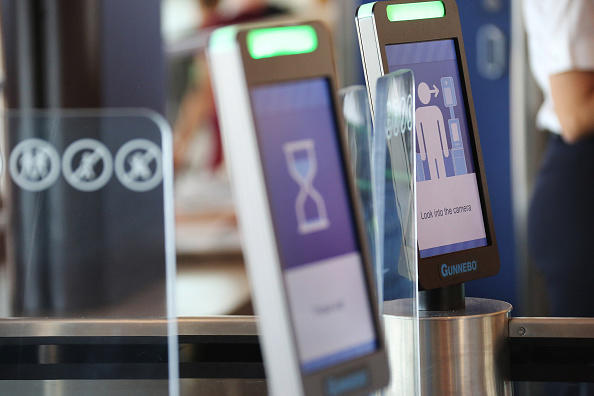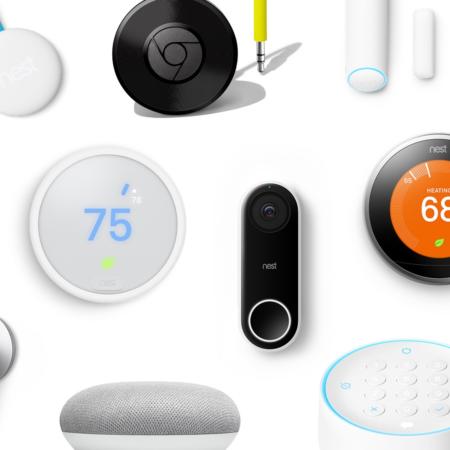Showing 7 results for:
privacy and security
Popular topics
All results

Twitter recently released a shocking statement revealing that they have been sharing private information of users with advertisers. In the statement posted on the Help Center of the company’s site, they admitted to matching customers to advertisers’ marketing lists using the email addresses and phone numbers they provided for security features like their Two-factor authentication process: “We recently discovered that when you provided an email address or phone number for safety or security purposes (for example, two-factor authentication) this data may have inadvertently been used for advertising purposes, specifically in our Tailored Audiences and Partner Audiences advertising system. “ According to Twitter, the Tailored Audiences feature allows advertisers to target ads to customers based on the advertiser’s own marketing lists (e.g., email addresses or phone numbers they have compiled). Partner Audiences then allows advertisers to use the Tailored Audiences feature to target ads...

Facebook isn’t exactly well known for having the best security practices and now, another blunder has surfaced. On Thursday, a report from Krebs on Security revealed the company had stored hundreds of millions of users’ passwords for Facebook, Facebook Lite, and Instagram in plain text, making user passwords accessible to thousands of Facebook employees. Usually, passwords are encrypted when they’re stored through a process called hashing , but Facebook had a “series of security failures” that left people’s password information wide open, according to the Krebs report. Pedro Canahuati, Facebook’sVP of Engineering, Security, and Privacy, confirmed the breach in a blog titled “Keeping Passwords Secure”, writing, “As part of a routine security review in January, we found that some user passwords were being stored in a readable format within our internal data storage systems.” This may not seem like a big deal, because the company said there’s no sign that the passwords were visible to...

From TSA unnecessarily searching Black women’s hair to their profiling of Muslims, airport security can quickly turn from a simple headache into a reminder of your status as an inherent threat. Now, airports are introducing a new, invasive security measure that is raising alarms. Throughout the United States, the US Customs and Border Protection program known as Biometric Exit is in use at departure gates in 17 airports, as reported by CNET . The program uses facial recognition technology to take pictures of people and “verify their identity.” The agency says it only holds onto the photos of citizens “until their identities have been verified” and everyone else’s for 14 days. The photos of every non-U.S. citizen are also sent to the Department of Homeland Security’s Automated Biometric Identification System (IDENT), which can store information for 75 years . By 2021 the system will be used to scan 97 percent of all travelers leaving the country, according to CNET. However, facial...

Some states are stepping up to the plate in regards to appropriately regulating tech. Recently, Mississippi’s attorney general, Jim Hood, said the state is preparing an antitrust case against Google, as reported by CNBC . “At some point in the future, there will be a reckoning,” Hood said, according to CNBC. “It’ll either be in Congress or in a court of law.” Hood said the case will tackle the privacy practices of Alphabet — Google’s owner — and it’ll be similar to a federal case brought against Microsoft in the late 1990s. In that case, the federal government reviewed antitrust charges against Microsoft. Eventually, the company was charged with acting as a monopoly and limiting competitions on PCs. At the time, they were forcing manufacturers to bundle Internet Explorer on their hardware products before receiving a license for the Windows 98 operating system. Obviously, Microsoft wasn’t forced to split up because they’re still around today. However, the settlement definitely shook...

If you have an old device, you might bring it to a thrift store, recycling center, or pass it down to somebody else you know. However, according to new research , those donated devices may still contain your personal information. For the study — published by security firm Rapid7 — researcher Josh Frantz purchased 85 devices for only $650, including computers, removable media like flash drives, hard disks, and cell phones. He ended up finding over 366,300 files of pretty sensitive information that included images and documents. Frantz was able to gain access to emails, social security, credit card numbers, passport information, dates of birth, and more. Essentially, all the data that you really don’t want falling into a random stranger’s hands. This highlights that a lot of centers aren’t properly wiping data before they pass devices on, even if they’re promising to do so. Frantz only found two devices that were erased properly, and only three of them were encrypted. It’s important...

Ever since Google accidentally omitted a Nest security device’s built-in microphone, the company has faced major backlash. Recently, Google tried to put some concerns to rest by confirming which Nest products have microphones, as Business Insider reported . Google Nest features a wide range of smart home products, including doorbells, an alarm system, and even a thermostat. For worried customers, instead of providing security, those devices became potential hosts of more hidden microphones. California Senator Kamala Harris told Business Insider, “Americans shouldn’t have to fear that the products in their home could be spying on them.” Now, Google has confirmed the following products all contain microphones: Nest Guard Hub, Nest Protect (second-generation model), Nest Cam IQ outdoor, Nest Cam IQ indoor, Nest Cam Outdoor, Nest Cam Indoor, and Nest Hello. However, none of these microphones are a secret. Google told Business Insider, “These were also clearly called out by the company...

A Federal Trade Commission (FTC) complaint filed in December is alleging that Facebook failed to protect private health information in its groups. The complaint– which was recently made public–alleges that Facebook leaked data about individuals in their patient support groups. These groups are dedicated to providing a sense of community for those who share the same medical conditions. BRCA and NGLY1 community advocates helped file the complaint. BRCA is a genetic mutation that has been linked to breast cancer, while NGLY1 is a rare genetic disorder. “Facebook offers the illusion of control but ignores and obscures privacy decisions,” the complaint said. The complaint alleges that Facebook was deceptive in using the terms “safety” and “control” for its medical support groups while giving users the ability to download personal information about group members. Support group members could have their names, phone numbers and email addresses downloaded which would link them to specific...